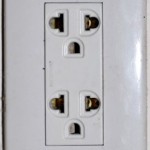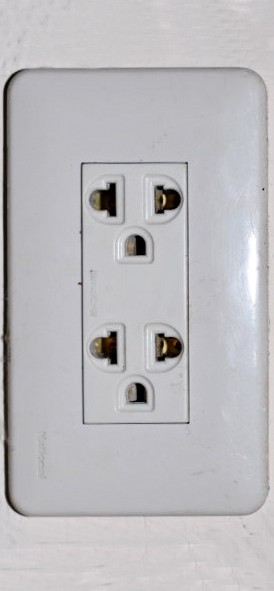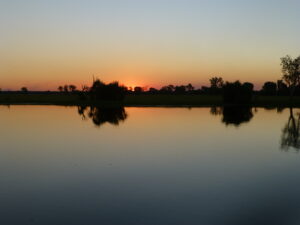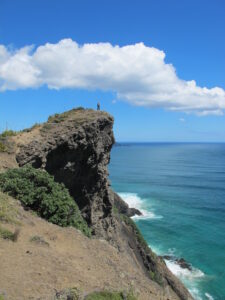
For Americans, getting power for your stuff in SE Asia (Thailand, Laos, Cambodia, Vietnam, Myanmar) is very easy. Everywhere we went, we found electrical outlets in which you can also stick standard U.S. two-prong electrical plugs. Easy.
However, if you have a device with a U.S. grounded three-prong plug, you might bring a simple converter that turns a three prong into a regular two prong to make sure you can use all outlets. We carried along our all-in-one multi-plug converters (from Kensington) but didn’t have any electronics with three-prong plugs, so we never had to use them.

In New Zealand and Australia, you will need converters like the Kensington since most sockets require an angled two prong or three prong plug. You will also find unusual phone jacks here too, by the way.
Note that a converter is just a way of connecting one type of plug to a different type of socket. A typically hefty transformer alters the voltage of the electricity from the plug to the device. The traditional travel packs for electricity give you multiple converters for different countries and a bulky transformer.
You may not need the transformer, however, even though the voltage is higher in all these countries, as it is in Europe: 220V as opposed to the 110V of the U.S. Most computers, mobile phones, camera batteries, etc. are charged through their own transformers, which can handle voltages from 110 to 220.
If you bring your own hairdryer or similar 110V appliance, make sure it can handle 220V power; some have a switch for the higher voltage. Otherwise, you will need to bring a transformer to adjust for the extra juice, or risk frying the thing. You’ll find, however, that most hotels offer hair dryers that work with their current, or you can just buy an inexpensive one over there.
For info on other countries, there is a great Wikipedia entry on this subject at “AC power plugs and sockets.”







When I studied abroad in England, I borrowed a friend’s alarm clock. I plugged it in, it made a strange whine for a few seconds, then caught on fire.